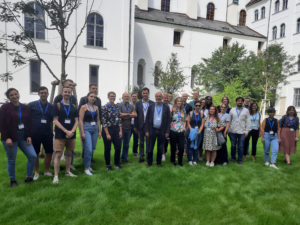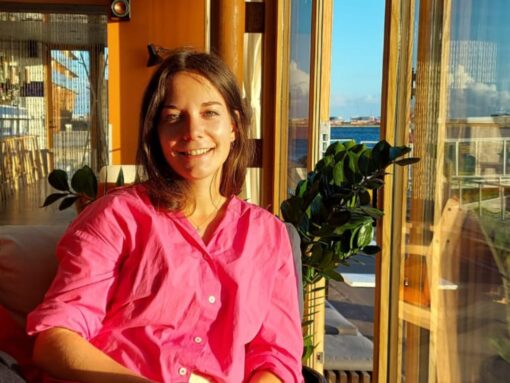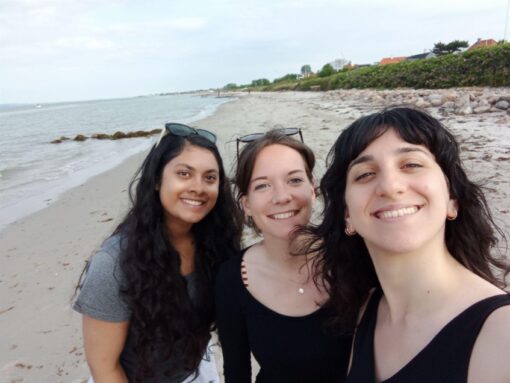What are the particularities and developments that shape urban housing markets in Central and South-Eastern Europe? How do politics, economics, and society deal with different paths of development? How do socio-spatial processes such as gentrification, segregation, etc. present themselves in various urban contexts? These questions, and many more, were treated during an interdisciplinary summer school on the comparative exploration of urban housing markets, held from 5 to 15 September 2022 in Vienna, Belgrade, and Athens. After two years of delay due to the Corona pandemic, the summer school was held by the Institute of Urban and Regional Research at the Austrian Academy of Sciences (ISR, ÖAW) in partnership with the Department of Geography and Regional Research at the University of Vienna, the Geographical Institute at the University of Belgrade, and the Harakopio University in Athens. For three days in each city, scholars, experts, and local actors held morning lectures and afternoon excursions. Twenty-one students hailing from ten different nationalities and as many disciplines participated in the event.
Context and Intention of the Summer School
On the one hand, housing represents a basic human need that cannot be substituted. On the other hand, housing is increasingly commodified, meaning that housing units are turned into saleable goods. This is nowhere as apparent and as conflict-laden as in cities, especially when they are under great demographic pressure of growth.
However, each city and its context is unique. Local, international, and historical phenomena and events (such as the “Red Vienna”, the economic crisis in Athens, or Belgradian socialism) permanently influence housing markets and their politics. They also leave their mark on the housing conditions of the inhabitants of a city. Therefore, the question of the comparability of these regional housing markets and their varying trends was the golden thread leading through the summer school. The idea was that participants carried out comparative housing research in insufficiently researched European cities. Choosing Vienna, Belgrade, and Athens meant that the summer school drew attention to cities that have not yet been compared to each other and that are considered peripheral in the European context.
The summer school was interested not only in various urban contexts, but also in the ways in which these are generally treated in scholarly circles. The concept of gentrification, for instance, displays different facets in the cities under consideration. In Athens, gentrification is closely associated with touristification (that is, the upgrading of properties for the purposes of tourism as well as the increase in short-term rental options such as those offered by AirBnB). In Vienna, the old tenement houses (Zinshäuser) of the Gründerzeit become the object of interest for (international) investors. In Belgrade, the scarcity of affordable housing as well as the very high proportion of home ownership against the background of the former socialist state order raised our interest. These short examples illustrate the various manifestations as well as the many different local interpretations of the concept of gentrification.
Why compare the housing markets in Vienna, Belgrade, and Athens?
At first, these three cities seem highly diverse in their housing policies and property markets. However, one may identify common trends such as globalisation, increasing tourism, and financialisation or commodification of the housing market. Historical and local factors translate these common trends, which shape the cityscape as well as the structure of the housing market. Vienna holds a considerable stock of communal and cooperative housing units (around 42% of the total stock). These should secure the provision of affordable housing for its population. In Belgrade, the post-socialist context shapes the housing market whereas in Athens, the provision of housing has predominantly been entrusted to the free market. In both cases, this has led to a high proportion of home ownership (more than 95% for Belgrade [1995] and 56,72% for Athens [2011]). In each situation, housing-market actors find different solutions to challenges such as guaranteeing the continued provision of affordable housing. While doing so, they must consider factors including the prevailing political conditions, different home owners and tenants, as well as cultural, social, and physical structures.
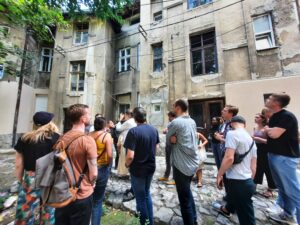
Main activities of the summer school
Conducting a summer school, which is a ten-day seminar outside of the university semester, meant that an international mix of students and experts could meet and exchange ideas. They represented several disciplines, including Public Health, Geography, Property Law, Architecture, etc. Their varying professional as well as geographical perspectives inspired lively discussions, from which participants and presenters alike could benefit. Another important factor, which is quite exceptional even for a summer school, was the opportunity of visiting the three cities in succession, walking and experiencing them actively. Theoretical knowledge became directly accessible and gained valuable substance.
The programme included afternoon walks of many kilometres in each of the three cities. In the mornings, there were typically two presentations on topics that related specifically to the city we were visiting. Of course, academic input played an important role here, although experts from the field also joined in the discussion, contributing other, more practical perspectives. Exchanges with academics from the hosting universities as well as with local actors and economic and political experts remained an important element of the summer-school experience throughout.
Apart from the general principles of comparative urban and housing research, local specifics were identified. These included cooperative housing schemes in Vienna, informal settlements in Belgrade, and the inadequate provision of accommodation for refugees in Athens. These themes provided the context for a total of six lectures that were expanded upon during the afternoon excursions. We walked densely populated quarters and informal settlements, looked at objects representing socialist brutalist architecture, and visited the sites of the soon-to-be-demolished Sophienspital in Vienna as well as luxury high-end building projects. On the excursions, the discussions became even more lively through the professional and personal connections that the local experts had with these sites.
The evenings were dedicated to informal social gatherings and exploring the cities beyond their urban housing elements. Each city offered one organised social event for all participants and organisers, which was a highlight in the programme and that offered the opportunity to taste regional delicacies.
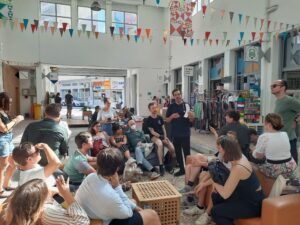
Reflection
The main idea of the summer school was reaching a comprehensive understanding of urban housing supply through a comparative approach. Regional and historical elements on the one hand, and the question of the degree to which academic concepts such as gentrification can be conveyed to different urban contexts on the other kept us occupied throughout. Complex patterns of dependencies, mutual influencing, and historical, economic, and local factors became recognisable. These cause the difficulty of the lack of a general solution that would be applicable to all urban spaces alike. Yet, generalisations and conceptual abstractions are of central importance for the transfer of knowledge and for describing and explaining our world. Therefore, the fine line between generalisation and specificality must be navigated while remaining sensitive to the ways in which knowledge is produced and conveyed. Accordingly, academic exchange and a culture of discourse are essential elements of knowledge transfer. These should increasingly include interdisciplinary knowledge in order to react to challenges such as the neoliberal commodification of goods in primary service provision.
